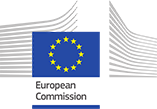The Commission has approved the merger with a series of remedies to stave off competition concerns.
French mobile operator Orange and Spanish MásMóvil have secured EU approval for their merger plans.
As part of the decision, MásMóvil must divest spectrum to a virtual mobile network operator called Digi. MásMóvil will need to hand over spectrum in two medium-frequency bands (1,800 MHz and 2,100 MHz) and one high-frequency band (3.5 GHz)
MásMóvil will also need to enter into an optional national roaming agreement to make capacity available to Digi, but it will be up to Digi whether it decides to use this or remain with its current wholesale provider Telefónica.
The Commission says it has applied these remedies to address various competition concerns it had about the deal.
During its investigation, it found that the merger would create the largest operator by customer numbers in Spain and eliminate a “close and important” competitor to Orange. It also found that the merger could lead to “significant price increases” for Spanish consumers of well above 10%.
The Commission is confident that the remedy measures it proposed will “fully address” these concerns, and has therefore decided to allow the merger to go ahead with these conditions.
“Orange and MásMóvil’s joint venture threatened competition in the retail supply of mobile and fixed internet services in Spain,” says the Executive Vice-President in charge of competition policy Margrethe Vestager.
“But the commitments offered by the parties will enable Digi, the largest and fastest-growing mobile virtual network operator in Spain, to replicate the strong competitive pressure exerted by MásMóvil. They will ensure that consumers in Spain continue to benefit from a competitive telecom market, in terms of prices, quality and 5G connectivity.”

